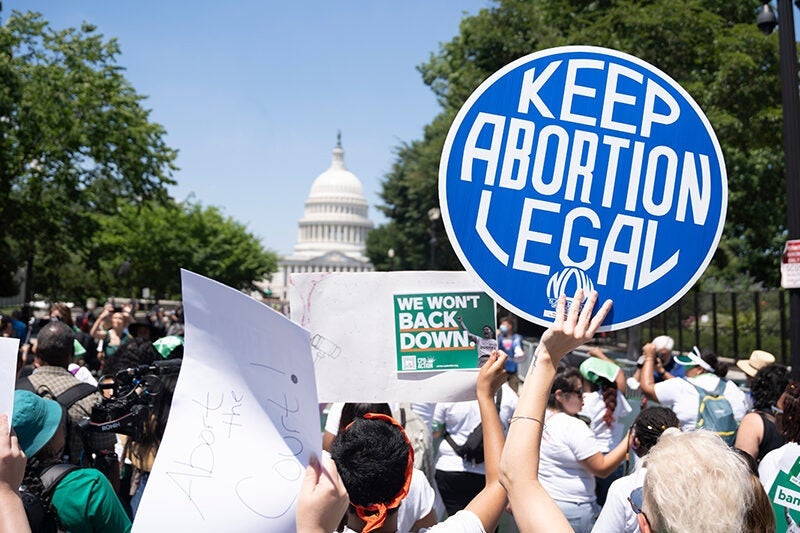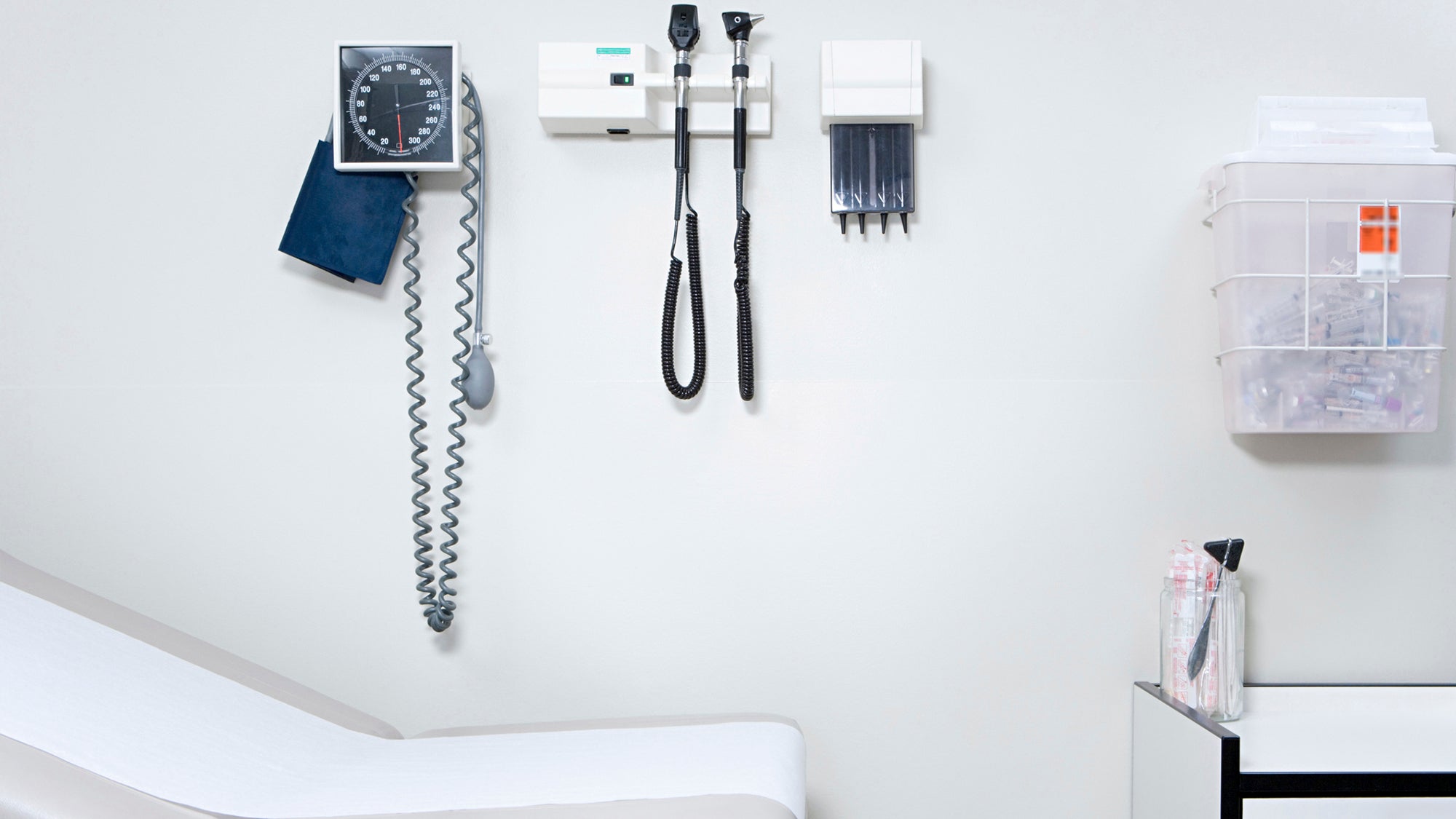Abortion restrictions have led to negative health impacts, say panelists

July 1, 2024—In the wake of the U.S. Supreme Court’s decision to overturn the constitutional right to abortion in 2022, a cascade of restrictions on the procedure has resulted in a wide range of negative health impacts for patients and stress among clinicians, according to experts on a Harvard T.H. Chan School of Public Health panel.
On June 27, at a virtual event hosted by the Studio, speakers discussed ongoing legal fights to restrict abortion access that have played out across the country.
For example, on June 13, the U.S. Supreme Court issued a ruling that maintained broad access to mifepristone, one of the two commonly used drugs in medication abortion. In the case, abortion opponents challenged the drug’s approval by the Food and Drug Administration (FDA), citing concerns about its safety. The court determined that the anti-abortion groups did not have legal standing to bring the case, since they were not directly affected by the FDA’s actions—but notably, the court did not address the groups’ actual arguments regarding the FDA’s drug approval process.
“Abortion opponents relied on all types of junk science—inaccurate purported evidence—to try and challenge the very extensive science-based determinations that the Food and Drug Administration had relied on,” said Beth Brinkmann, senior litigation director at the Center for Reproductive Rights. “The threat remains because states opposing abortion are attempting to keep the case alive.”
Another Supreme Court ruling, issued on June 27, allows hospitals in Idaho to perform emergency abortions for the time being, while litigation challenging the procedure continues in lower courts. Furthermore, 14 states have enacted almost complete abortion bans, and another 10 have significant restrictions, according to Brinkmann.
Both patients and clinicians are being harmed by the slew of abortion restrictions, according to the panelists.
“Abortion bans don’t actually erase the need that people have for abortion care—they just make it harder for people to access this essential health care,” said Brittany Fonteno, president and CEO of the National Abortion Federation. The organization runs the National Abortion Hotline, which provides information and financial assistance to people seeking abortion care. Fonteno said that since state abortion bans have gone into effect, the hotline has seen a significant increase in patients who need help traveling to different states to access care.
“There is devastation, anger, fear, anxiety, and so many other really valid and complex emotions that come with patients being forced to flee their communities to access care,” she said.
Patients who are denied abortions experience a broad range of negative health consequences, according to Antonia Biggs, associate professor and social psychologist at the Advancing New Standards in Reproductive Health program at University of California, San Francisco. She was a researcher in the Turnaway Study, which ran from 2008–2016 and compared outcomes of individuals seeking abortions who either received or were denied care.
“A lot of the legislation and policy decisions that we see … have held this assumption that abortion has adverse consequences to people’s mental health,” Biggs said. “Unlike that assumption, we found the opposite—we found that denying people an abortion was worse off for people’s mental health.”
The study found that people who were denied abortions had higher levels of anxiety and stress, as well as lower self-esteem. The people most affected were those who had a previous history of mental health conditions, trauma, or abuse. “It is those people that I worry the most about right now,” Biggs said.
She added that people who were denied abortions and went on to give birth also faced the risk of birth-related complications and were more likely to end up living in poverty.
Stella Dantas, an obstetrician-gynecologist and president of the American College of Obstetricians and Gynecologists, shared her experiences in navigating abortion bans while caring for patients.
“There are delays in care because of the confusion about what you can actually counsel a patient on what they can do,” she said. “Your hands are tied as to really giving them all the full options and what every patient deserves.”
Dantas said that, for some patients, the need to travel to access abortions and the subsequent delays in care could lead to their medical conditions getting worse. Marginalized groups are particularly affected, since patients may not have the transportation or child care necessary for them to travel. “We may see poorer outcomes with both complications and deaths as patients are forced to wait,” she said.
Because of the challenges in providing care to patients, clinicians are experiencing stress and burnout and are leaving the field of reproductive health care, according to Dantas. Additionally, medical students are choosing to get training in states where they can provide comprehensive health care without fear of criminalization, leading to a shortage of clinicians in states with abortion bans. “We are seeing these maternity care deserts, and it’s incredibly challenging to practice in a time like this,” she said.
The panelists also gave examples of initiatives to maintain abortion access. As a result of voters’ efforts, four states—California, Michigan, Ohio, and Vermont—have passed amendments to their constitutions protecting abortion rights. In the upcoming 2024 elections, voters in many more states will decide on ballot measures about abortion access.
“Along with all of these challenges, we’re also seeing a lot of positives in terms of bringing people together and really fighting for this work [to maintain abortion access],” Biggs said.
Photo: Shutterstock/Luis Yanez


